Conference is divided into two days. On the first day, there will be a conference and evening networking programme prepared for you. On the day two, we will continue with the conference program in two separate conference rooms.
- Specialists sharing their experience
- Inspiration from automotive industry experts
- New contacts and networking
- Evening raut
How it will run
After opening the conference on Tuesday morning, we will start the first lectures. Then, lunch will be served at the hotel restaurant. After the lunch break, we will continue with the next set of lectures. If you find it difficult to concentrate you may welcome regular coffee breaks for your refreshment. After the last lecture, you will have some time to rest. An evening raut will take place in the nearby restaurant Talska bastion with the opportunity for informal networking.
Second day, after breakfast, the conference will continue with interesting lectures and panel discussions. Lunch will be served at the restaurant of Hotel Partizan.
*conference program is subject to change
June, 7th (Tuesday)
09:30 - 09:40 Conference opening
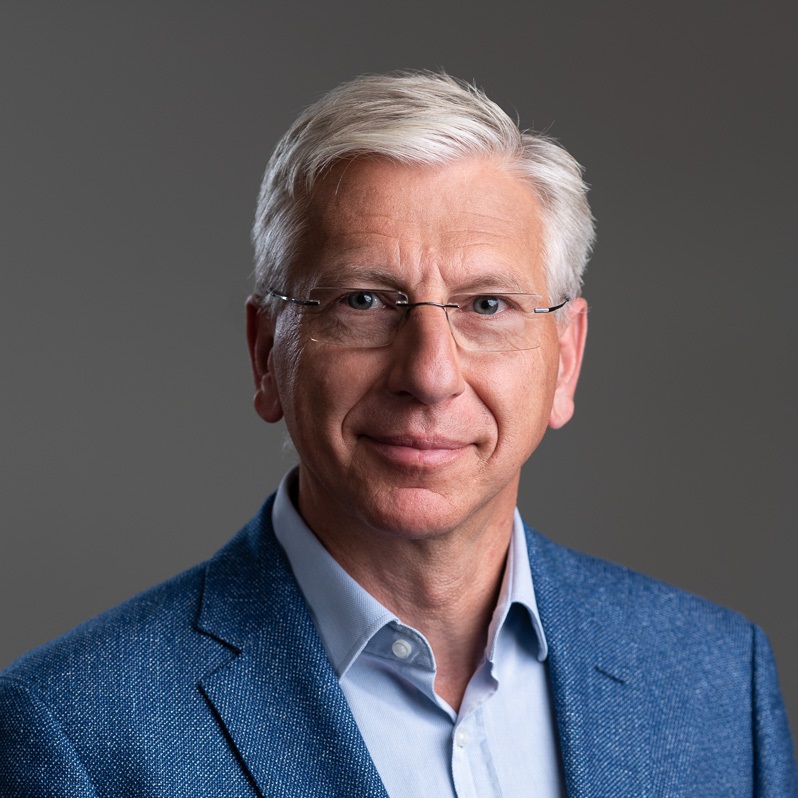
Alexander Matušek
President, Automotive Industry Association of the Slovak republic
He heads the External Relations / Environment / Social Services department at Volkswagen Slovakia, a.s. In the past, he was responsible for the management of the entire logistics at Volkswagen Slovakia and also held several management positions within the Volkswagen Group in Portugal and the USA. Since 2018, he is the President of the Automotive Industry Association of the Slovak Republic (second term). In 2018, he was elected Vice President of the Federation of Slovak Industrial and Transport Associations.
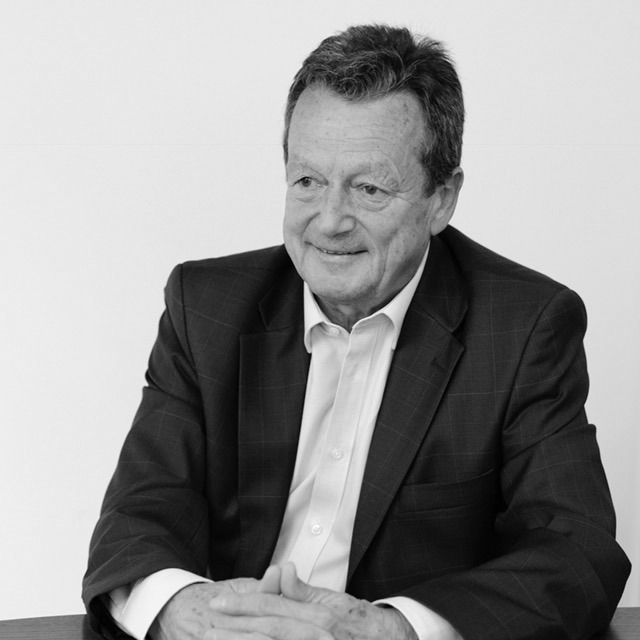
Ivan Hodáč
Event host, founder of Aspen Institute Central Europe, former ACEA Secretary-General
Ivan Hodač is a Founder and President of the Aspen Institute Prague. He was Secretary-General of the European Automobile Manufacturers’ Association (ACEA) from 2001 until October 2013. He is the Chairman of the Board at cabinet DN. The Financial Times listed him among the most influential personalities in Brussels politics. Before joining ACEA, he was Senior Vice-President and Head of the Time Warner Corporate office for Europe. Previously he was Secretary-General of the trade organization IFMA/IMACE, Senior Economist at Didier & Associates, and Assistant Professor at the College of Europe, Bruges. He was born in Prague, where he studied mechanical engineering. He completed his education in economics and political science at the University of Copenhagen and the College of Europe in Bruges (European studies).
09:40 - 10:10 The US, Europe, Russia and China: Geostrategic Outlook and Its Impacts on Automotive
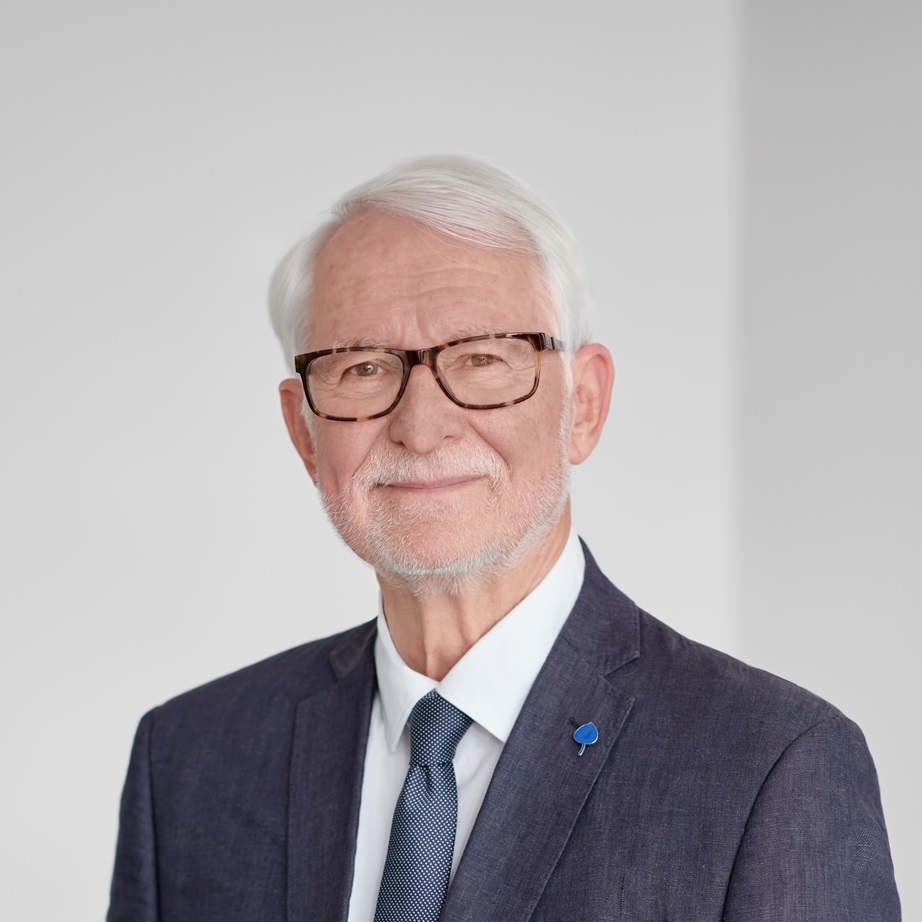
Rüdiger Lentz
Senior advisor, Rud Pedersen Public Affairs
Rüdiger Lentz started as a non-career officer in the German Bundeswehr, studied history and political science at the University of Hamburg and began his journalistic career as a military correspondent for the news magazine Der Spiegel. In the early 1980s he moved to WDR, where he became editing manager and foreign policy commentator for the first national channel, the ARD. Lentz was then editor-in-chief of RIAS in Berlin and later bureau chief and senior correspondent for Deutsche Welle in Brussels and Washington. From 2013 to 2020 he headed the German American Aspen Institute in Berlin. He was a co-founder of the German American Business Council in Washington, has been a long-time member of the Atlantic Bridge and is member of the prestigious German Foreign Affairs Council. He now works as Senior Advisor for the European public affairs agency Rud Pedersen.
The automotive industry in Europe is not only facing huge challenges because of the necessary transformation process from the combustion engine to electric and hydrogen-powered vehicles, but is now additionally challenged by the geostrategic and geoeconomic disruptions caused by Russia and the Ukraine war. Among the changed framework conditions three are particularly noteworthy:
- the volatility of the supply chains and the resulting disruptions in production, distribution & sales
- the effects of the Ukraine war and the imposed sanctions and embargoes on markets, especially as far as Russia, Eastern Europe and the Far East are concerned.
- the increasing instability of trade relations in the triangle between Europe, the US and China.
The European automotive and supplier industry is therefore facing a challenge that can only be mastered by a decisive and coordinated political and economic strategy at the European level. Since millions of well-paid jobs, which are also of crucial importance for social stability in the EU, depend on the future viability of this industry, it is time to send a strong message to those responsible in politics.
10:10 - 10:40 “Fit for 55” in the context of the transformation of the automotive industry and current challenges
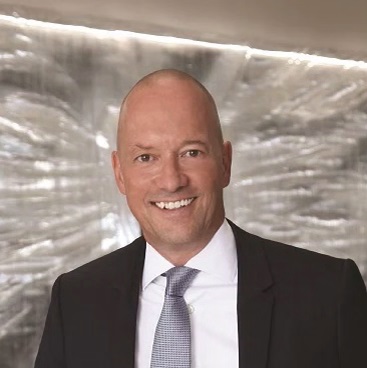
Jens Hörning
Partner, PwC Slovakia, CEE Automotive Industry Leader
![]() Jens Hörning is a partner at PwC and 25 years with the firm. He started his career in Frankfurt/Germany and moved to PwC Czechia in 2002 where he spent 4 years taking care of the German Business Group with focus on automotive clients. Since 2006 he is located in Bratislava/Slovakia and leads the German Business Group for Slovakia and CEE. Jens Hörning is the PwC CEE Automotive Industry Leader. He is certified auditor and tax advisor.
Jens Hörning is a partner at PwC and 25 years with the firm. He started his career in Frankfurt/Germany and moved to PwC Czechia in 2002 where he spent 4 years taking care of the German Business Group with focus on automotive clients. Since 2006 he is located in Bratislava/Slovakia and leads the German Business Group for Slovakia and CEE. Jens Hörning is the PwC CEE Automotive Industry Leader. He is certified auditor and tax advisor.
The transformation of the automotive industry continues. Alternative drive trains, specifically battery-driven electric vehicles, are on the rise. The “Fit for 55” package, being part of the European Green Deal, aims to cut emissions by at least 55% compared to 1990 levels by 2030. Consequently, various challenges and opportunities lie ahead of the sector which also needs to deal with the impacts of current disruptions and geopolitical aspects that are difficult to predict.
10:40 - 11:30 Prospects for the Automotive Industry in the Region – Panel Discussion
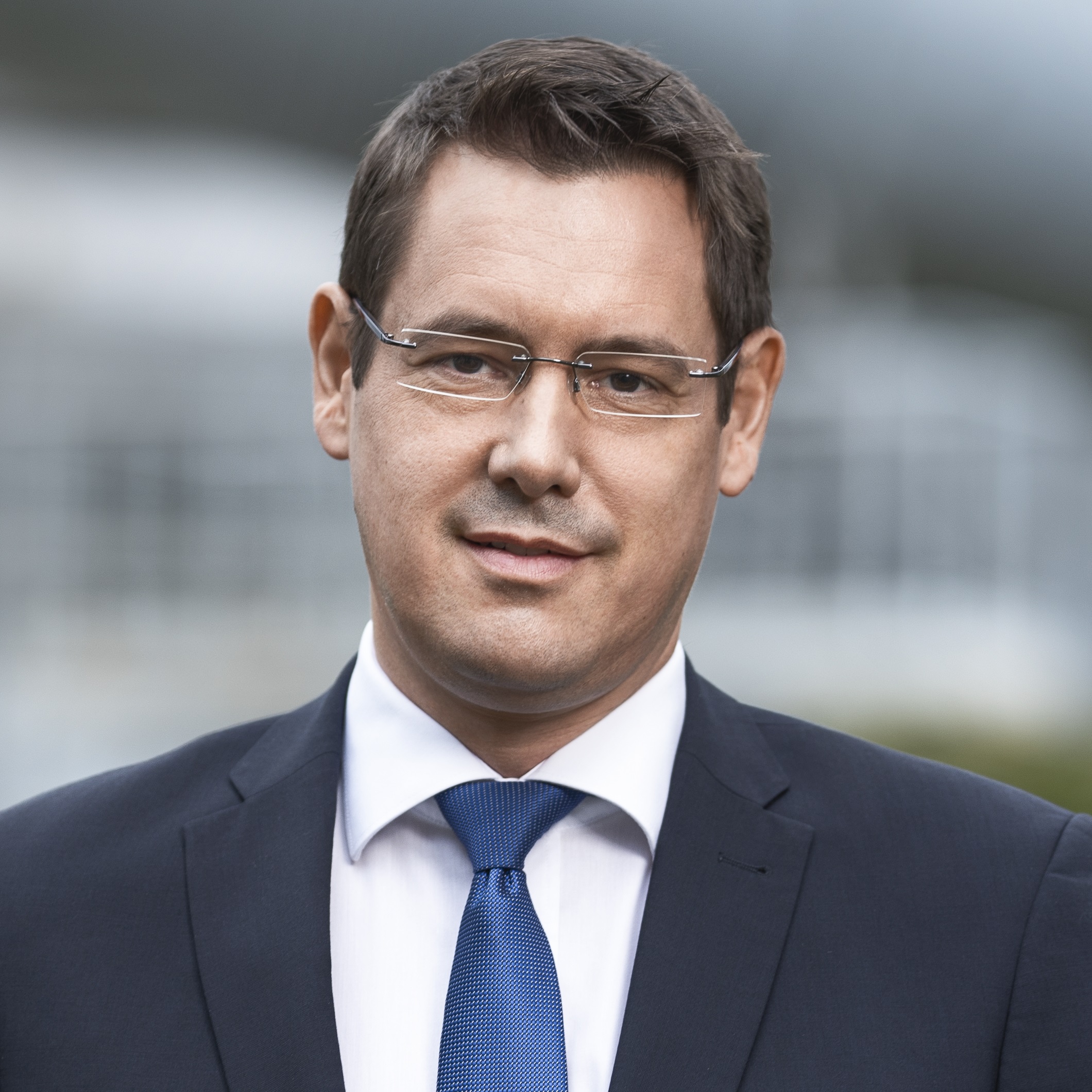
Oliver Grünberg
Chairman of the Board of Management and Member of the Board of Management, Production, Volkswagen Slovakia
Dr. Oliver Grünberg studied physics at the Technical University of Braunschweig, where he subsequently obtained a doctorate in mechanical engineering. He has been working for the Volkswagen Group since 1995. From 2007 to 2009, he headed vehicle production at the Volkswagen Group Rus plant in Kaluga. In 2010, he held the position of Managing Director and Director of Technical Affairs at ŠKODA AUTO India. Two years later, he took over responsibility for the VGR-GAZ project in Nizhny Novgorod. From 2014 to 2017, he headed the ŠKODA AUTO brand planning department in Mladá Boleslav. From there, in 2017, he returned to Russia, where he worked as Technical Director and Deputy General Manager at Volkswagen Group Rus in Kaluga. Since 2019, he has been the Chairman of the Board of Directors and a member of the Board of Directors for the technical area at Volkswagen Slovakia.
In the introductory panel of the conference, the highest representatives of OEMs operating in the region will show us their perception of the current crisis. The moderator’s questions will lead to cooperation with suppliers and demands on governments. Without communication across the supply chain and the right policies of governments and of Brussels, we can lose more than we gain.
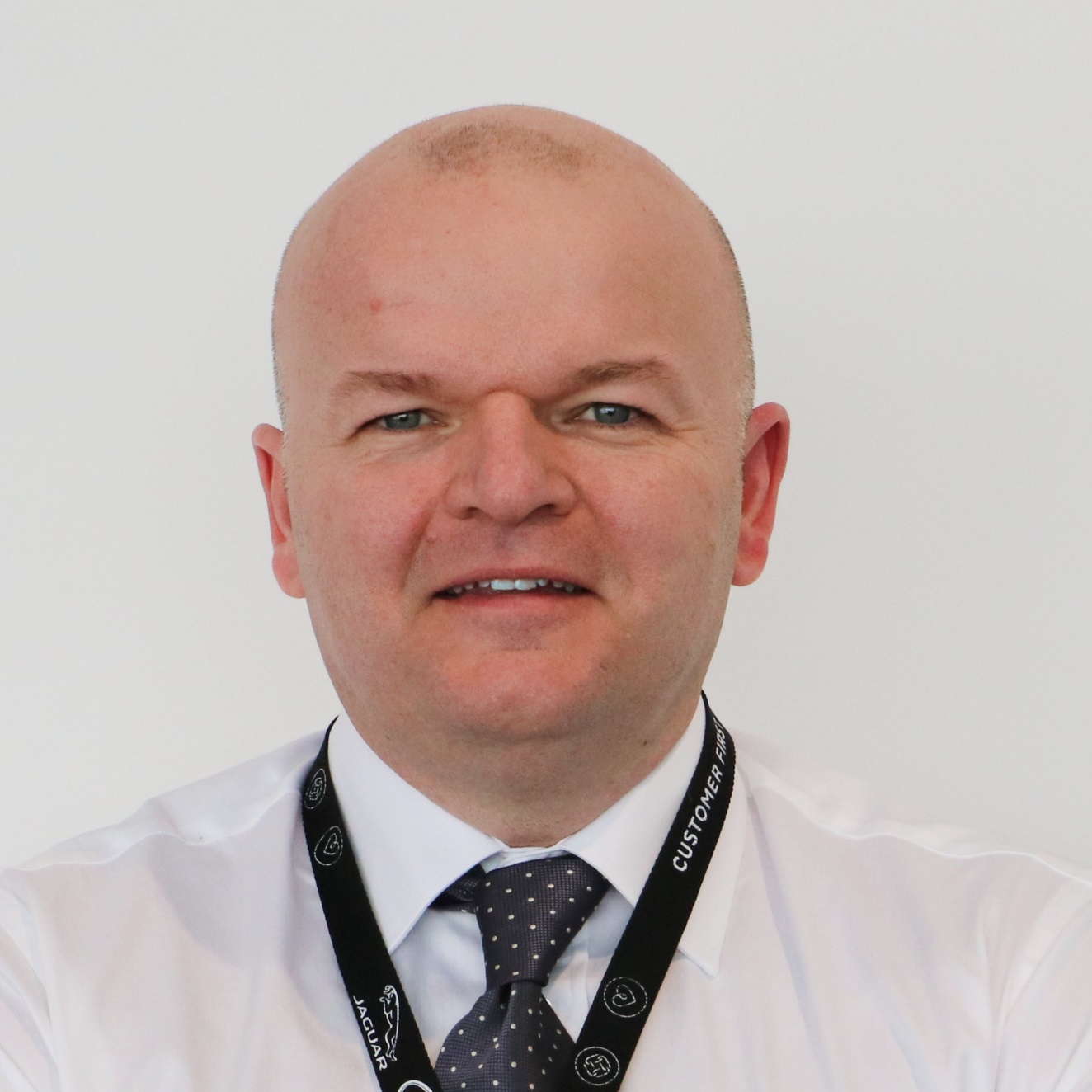
Russell Leslie
CEO, Jaguar Land Rover Slovakia
Russell Leslie, CEO of Jaguar Land Rover Slovakia, has almost thirty years of experience in the automotive industry working in the manufacturing industry at Jaguar Land Rover. He began his career in manufacturing operations, where he progressed through the position of group leader, production manager and production manager within the production, quality and commissioning department, and later to a senior management position within Advanced Manufacturing Engineering in the United Kingdom.
He has extensive experience gained from the construction and launch of new projects. He was the first employee of the project to build and start a production plant in Changshu, China, and was responsible for its start-up, production and quality. After returning to the UK, he worked for several years at the Halewood plant as technical director of bodywork and assembly.
He has been working in Slovakia since 2017, where he came as the manager of the construction and start-up project of the Jaguar Land Rover plant in Nitra, and since February 2019 he has taken over its management.
In the introductory panel of the conference, the highest representatives of OEMs operating in the region will show us their perception of the current crisis. The moderator’s questions will lead to cooperation with suppliers and demands on governments. Without communication across the supply chain and the right policies of governments and of Brussels, we can lose more than we gain.
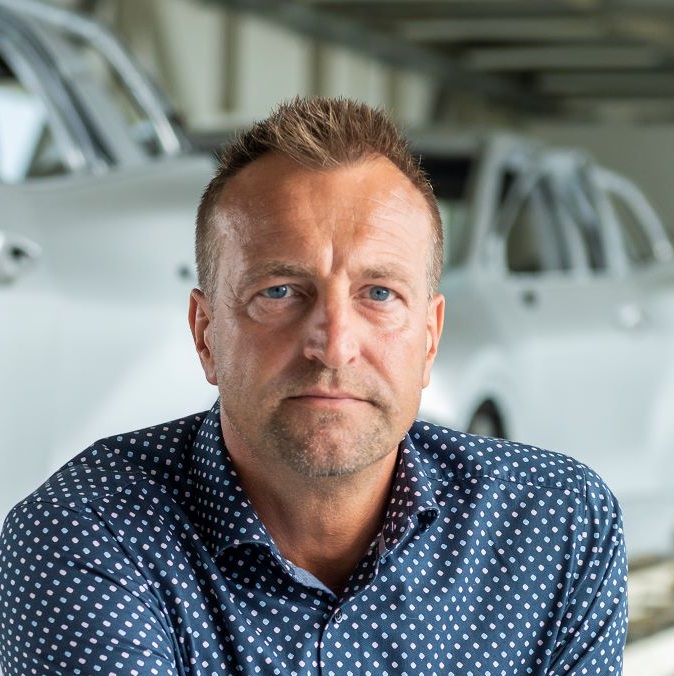
Roman Kraľovanský
Head of Production Group, Kia Slovakia
Roman Kraľovanský started his career at Kia Slovakia in the spring of 2005, when he started working in the maintenance section at the Press shop, and later worked as a maintenance supervisor for the Press shop, Body shop and Engine shop sections until 2009. In 2010, he was appointed Head of the Body shop department, where he was responsible for the production of vehicle bodies. Later, he headed the final assembly of cars for five years. In October 2017, he was appointed to the position of Head of the Production Sub-Division, responsible for the complete production of vehicles from stamping, through their welding, painting, including assembly, to which the production of engines was added in April 2022. As of September 1, 2022, he was appointed to the position of Head of Production Group responsible for the manufacturing group including the maintenance department.
In the introductory panel of the conference, the highest representatives of OEMs operating in the region will show us their perception of the current crisis. The moderator’s questions will lead to cooperation with suppliers and demands on governments. Without communication across the supply chain and the right policies of governments and of Brussels, we can lose more than we gain.
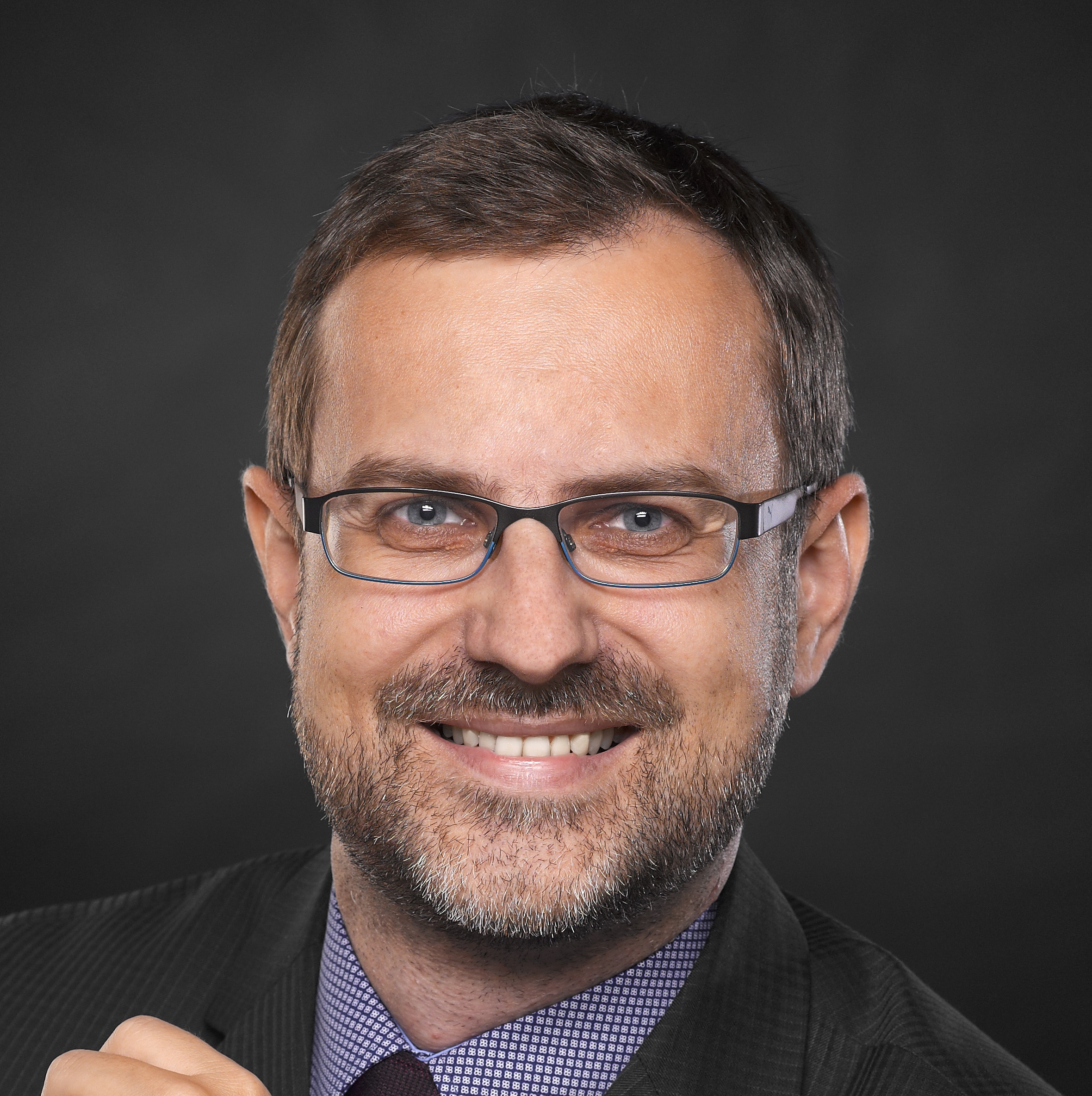
David Kříž
General Director, Iveco Czech Republic
David Kříž graduated from Faculty of Law at Palacky University and completed certificate program in business law at University of California, Berkeley. He has been working in Iveco (part of CNH Industrial group) since 1998 in various positions of Legal and Compliance. David currently holds the position of Iveco Group general counsel for Europe and in 2020 was appointed as a General Manager of Iveco Czech Republic, a. s. David is also a member of various boards of the Iveco Group companies.
In the introductory panel of the conference, the highest representatives of OEMs operating in the region will show us their perception of the current crisis. The moderator’s questions will lead to cooperation with suppliers and demands on governments. Without communication across the supply chain and the right policies of governments and of Brussels, we can lose more than we gain.
11:30 - 12:00 Towards sustainable mobility and production

Oliver Grünberg
Chairman of the Board of Management and Member of the Board of Management, Production, Volkswagen Slovakia
Dr. Oliver Grünberg studied physics at the Technical University of Braunschweig, where he subsequently obtained a doctorate in mechanical engineering. He has been working for the Volkswagen Group since 1995. From 2007 to 2009, he headed vehicle production at the Volkswagen Group Rus plant in Kaluga. In 2010, he held the position of Managing Director and Director of Technical Affairs at ŠKODA AUTO India. Two years later, he took over responsibility for the VGR-GAZ project in Nizhny Novgorod. From 2014 to 2017, he headed the ŠKODA AUTO brand planning department in Mladá Boleslav. From there, in 2017, he returned to Russia, where he worked as Technical Director and Deputy General Manager at Volkswagen Group Rus in Kaluga. Since 2019, he has been the Chairman of the Board of Directors and a member of the Board of Directors for the technical area at Volkswagen Slovakia.
The production company Volkswagen Slovakia plays an important role in the field of green transformation – as one of the pillars of the Slovak economy, as well as a plant that is part of a global group. Meeting commitments and goals on the road to zero environmental impact is a priority in all areas of its business. However, global changes towards environmental protection require comprehensive solutions as well as improved framework conditions.
12:00 - 13:00 Dealing with the European Green Deal – Panel Discussion
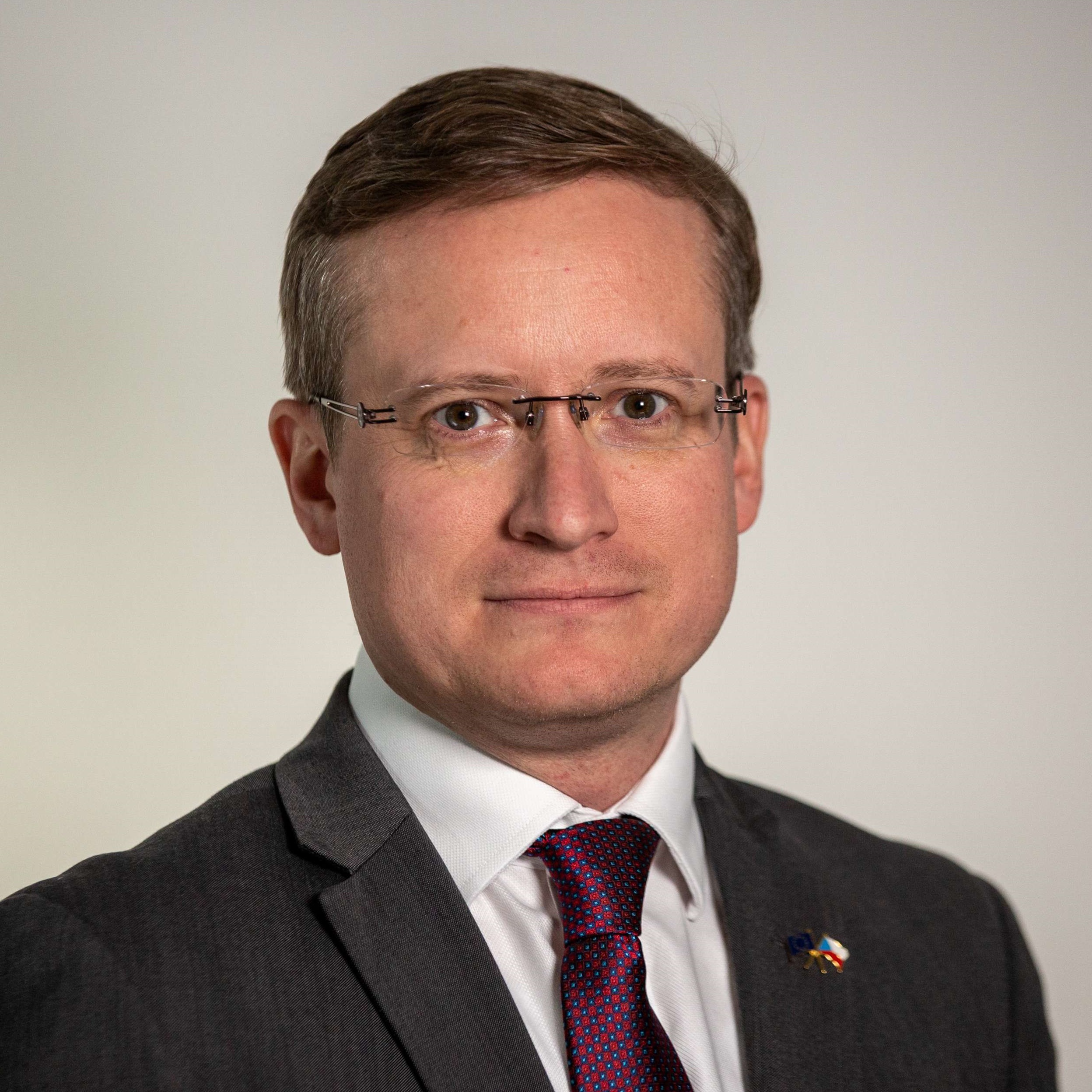
Ondřej Kovařík
Member of the European Parliament
Ondřej is a Czech Member of the European Parliament (elected for ANO in 2019) in the Renew Europe political group. He is a member of the ECON Committee and in this capacity is the chairman of the Working Group on Access to Finance for Small and Medium-sized Enterprises. It also sits on two other committees – the TRAN Committee and the LIBE Committee. Its portfolio ranges from transport and tourism to the practical application of new technologies, such as those based on artificial intelligence, or the wider access and use of digital finance for businesses and consumers.
Ondřej is the chief negotiator and spokesman for the Renew Europe political group and the ECON Markets Committee for Cryptoactive Regulation. He is currently working on a draft EU regulation on cryptoactive markets. He was also the rapporteur for the Digital Markets Act (DMA) in the LIBE Committee. It is also currently preparing several legislative proposals across its committees in the field of energy taxation or the establishment of a Social Climate Fund.
As far as legislation is concerned, its current main area of interest is the digital world, especially the growing digitalisation of the economy. In 2020, the rapporteur for the European Parliament was a report entitled Digital Finance: Emerging Risks in Cryptoactive – Challenges in Regulatory and Supervision in Financial Services, Institutions and Markets, which included recommendations for the European Commission.
As part of building European capital markets and moving towards a capital markets union, Ondřej took part in negotiating a number of pieces of legislation, leading Parliament’s work on a number of tax policies, including elements of the new European VAT regime, such as modernizing e-commerce rules.
The Green Deal was created in a world that is very different from today’s reality. The transformation, which was supposed to improve the quality of life from an environmental point of view, could, if wrongly set up, shake Europe’s most important industries, thus directly jeopardizing tens of thousands of jobs and causing a decline in living standards in Europe. Experts who look behind the curtain of the decision-making system in Brussels will give you an insight into how to respond responsibly to this challenge.
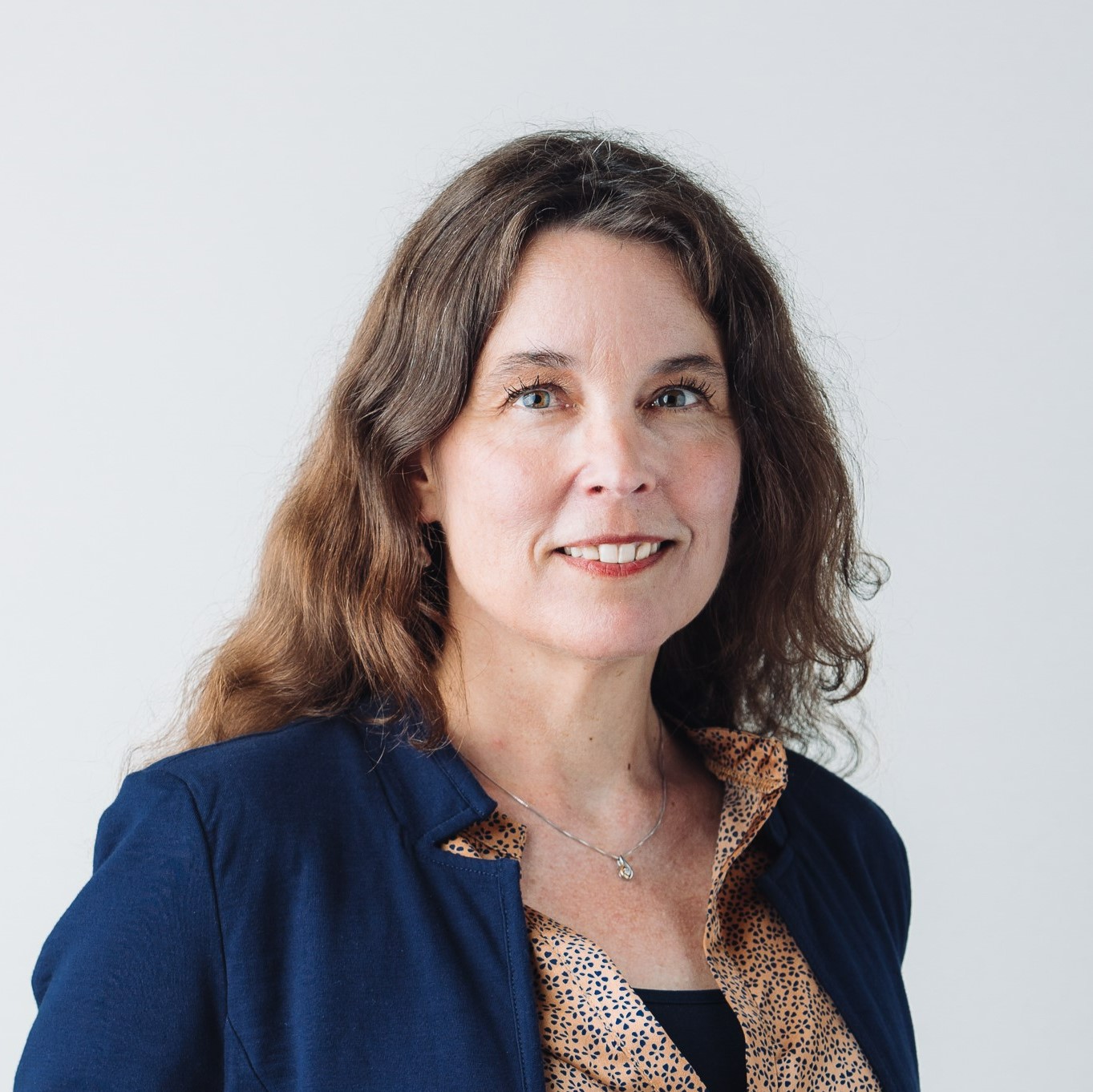
Sigrid de Vries
Director General, ACEA
Sigrid de Vries has held various positions in public affairs, industry and media over the past 25 years.
Sigrid de Vries has been Secretary General of CLEPA since 2017. Working in close concert with the association’s team and its members, much of her daily work focuses on the transformation towards safe, smart and sustainable mobility, translating the sector’s technology solutions and industrial realities into tangible policy recommendations.
A Dutch national, Sigrid studied journalism in the Netherlands and joined the country’s financial daily in Amsterdam in 1994. From 1998, she covered EU politics, the internal market and enlargement as EU correspondent in Brussels.
Sigrid moved to Berlin, Germany, in 2002 to report on the country’s politics, international relations, economy and business. In 2006, she became director of communications & public relations at the European Automobile Manufacturers Association (ACEA) in Brussels. From 2012, she led the external relations and communications department at CNH Industrial in Turin, Italy, as VP and member of the EMEA region’s management committee.
Before joining CLEPA, Sigrid was Secretary General of the Association of the European Construction Equipment Industry (CECE) in Brussels.
The Green Deal was created in a world that is very different from today’s reality. The transformation, which was supposed to improve the quality of life from an environmental point of view, could, if wrongly set up, shake Europe’s most important industries, thus directly jeopardizing tens of thousands of jobs and causing a decline in living standards in Europe. Experts who look behind the curtain of the decision-making system in Brussels will give you an insight into how to respond responsibly to this challenge.
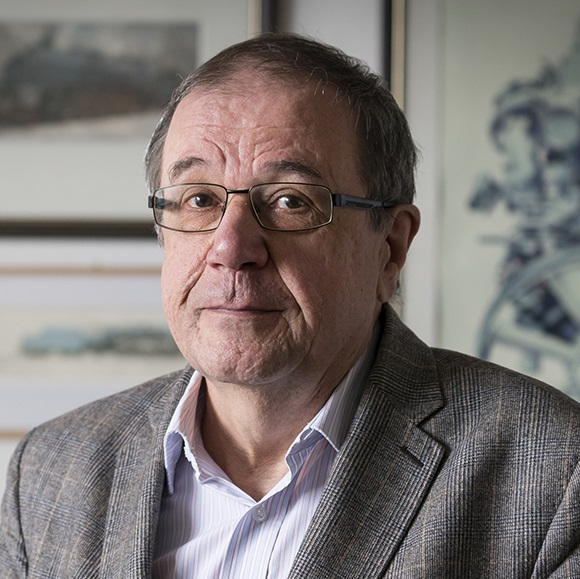
Jan Macek
Professor, Center of Vehicles for Sustainable Mobility, Faculty of Mechanical Engineering, Czech Technical University in Prague
After studies at the Czech Technical University in Prague (1972) he worked for 20 years in industrial research of highly turbocharged diesel and gas engines and obtained his Ph.D. in the National Institute for Machine Research in 1980. He entered the Czech Technical University as a lecturer in 1982, obtained his DrSc. in 1990 and full professorship in 1993. Since 1994 till 2016 he headed the Department of Automotive Technology, having been the dean of Mechanical Engineering Faculty (1997-2000) and vice-dean for R&D (2006-2017). He is focused on powertrain and engine design and thermodynamic optimizations based on combination experiments and simulation methods. He is an author of more than 20 patents and more than 100 papers (recently published especially in SAE Papers and Journals).
The Green Deal was created in a world that is very different from today’s reality. The transformation, which was supposed to improve the quality of life from an environmental point of view, could, if wrongly set up, shake Europe’s most important industries, thus directly jeopardizing tens of thousands of jobs and causing a decline in living standards in Europe. Experts who look behind the curtain of the decision-making system in Brussels will give you an insight into how to respond responsibly to this challenge.
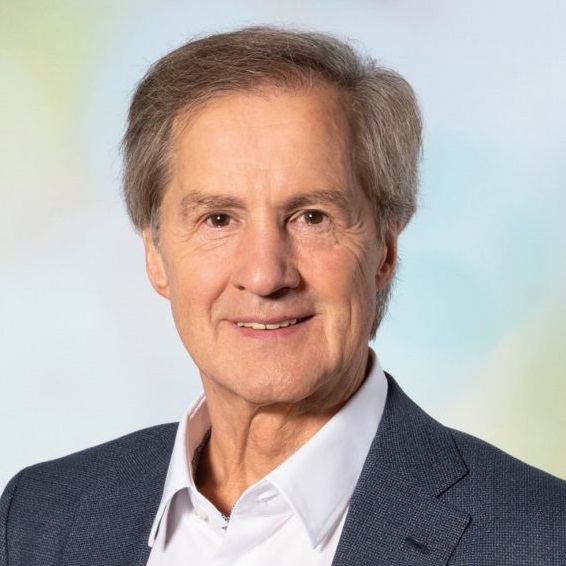
Jo Leinen
Former Minister of Environment and Member of the European Parliament
The Green Deal was created in a world that is very different from today’s reality. The transformation, which was supposed to improve the quality of life from an environmental point of view, could, if wrongly set up, shake Europe’s most important industries, thus directly jeopardizing tens of thousands of jobs and causing a decline in living standards in Europe. Experts who look behind the curtain of the decision-making system in Brussels will give you an insight into how to respond responsibly to this challenge.
13:00 - 14:15 Lunch

Hotel Partizan Restaurant
14:15 - 15:15 Transformation of Powertrains & Transformation of Suppliers – panel discussion

Sigrid de Vries
Director General, ACEA
Sigrid de Vries has held various positions in public affairs, industry and media over the past 25 years.
Sigrid de Vries has been Secretary General of CLEPA since 2017. Working in close concert with the association’s team and its members, much of her daily work focuses on the transformation towards safe, smart and sustainable mobility, translating the sector’s technology solutions and industrial realities into tangible policy recommendations.
A Dutch national, Sigrid studied journalism in the Netherlands and joined the country’s financial daily in Amsterdam in 1994. From 1998, she covered EU politics, the internal market and enlargement as EU correspondent in Brussels.
Sigrid moved to Berlin, Germany, in 2002 to report on the country’s politics, international relations, economy and business. In 2006, she became director of communications & public relations at the European Automobile Manufacturers Association (ACEA) in Brussels. From 2012, she led the external relations and communications department at CNH Industrial in Turin, Italy, as VP and member of the EMEA region’s management committee.
Before joining CLEPA, Sigrid was Secretary General of the Association of the European Construction Equipment Industry (CECE) in Brussels.
The transition to electro-mobility is an unprecedented disruption of a system in which the automotive industry has operated on a supply and demand basis for more than 130 years. Externally, although it is represented by car brands, the industry is significantly dominated by the supplier segment in terms of the number of individual companies, but especially the number of employees. Suppliers are the ones who can and many will face the end of their existence. Only companies that sufficiently adapt to future market needs can avoid extinction. In this panel, the most professional will represent their opinions, experiences and demands towards the government. Get inspired.
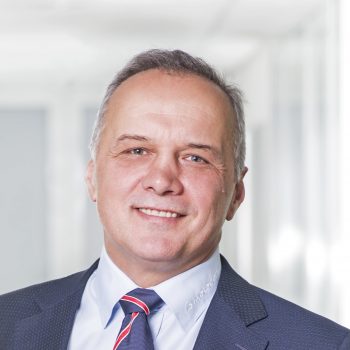
Štefan Rosina
President, MATADOR Group
Štefan Rosina is currently the President of MATADOR Group and the Chairman of the Board of Directors at Matador Holding, a. s. In 1984 he started his career in Matador working at various positions in production. Since 1985 he held number of positions as a research employee, technical engineer at Investment Department and Director at Technical Development Department. Since 1997 he served as a Vice-President for Development of Science and Technology, Vice-President for Strategy and Chairman of Supervisory Board. In these days, he presents a major leader in the whole MATADOR Group. He tries to prepare all key aspects in the company for the significant technology decade.
The transition to electro-mobility is an unprecedented disruption of a system in which the automotive industry has operated on a supply and demand basis for more than 130 years. Externally, although it is represented by car brands, the industry is significantly dominated by the supplier segment in terms of the number of individual companies, but especially the number of employees. Suppliers are the ones who can and many will face the end of their existence. Only companies that sufficiently adapt to future market needs can avoid extinction. In this panel, the most professional will represent their opinions, experiences and demands towards the government. Get inspired.
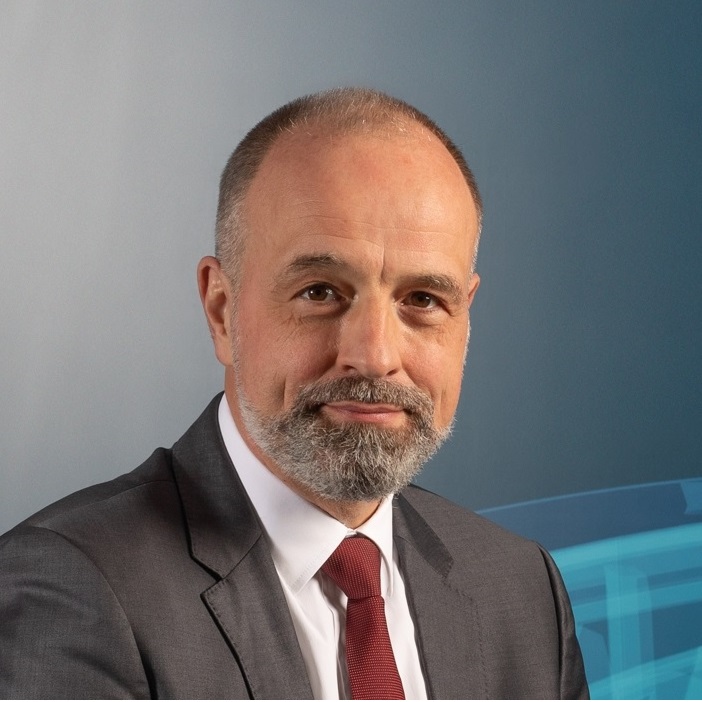
Dietmar Weigt
Chairman of the Management Board, ZF Slovakia
Dr. Dietmar Weigt was born in Bonn (Germany) in 1968. He holds a PhD. in mechanical engineering from Ruhr-University Bochum (Germany) and an MBA from University St. Gallen (Switzerland) and RWTH Aachen (Germany). He held various managerial positions in Engineering and Production of powertrain and chassis components within the ZF Group in Germany and Slovakia. In 2014 he became a member of the management board of ZF Slovakia and was appointed Chairman in 2021. In his spare time, he enjoys family life with his wife, 2 sons and a daughter as well as gardening and 3D printing.
The transition to electro-mobility is an unprecedented disruption of a system in which the automotive industry has operated on a supply and demand basis for more than 130 years. Externally, although it is represented by car brands, the industry is significantly dominated by the supplier segment in terms of the number of individual companies, but especially the number of employees. Suppliers are the ones who can and many will face the end of their existence. Only companies that sufficiently adapt to future market needs can avoid extinction. In this panel, the most professional will represent their opinions, experiences and demands towards the government. Get inspired.
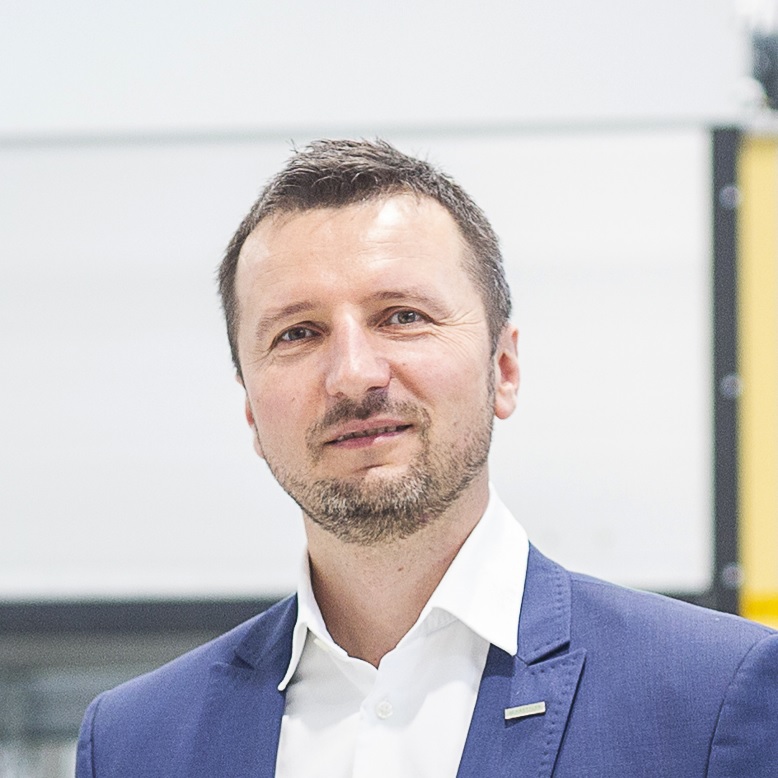
Milan Jurky
Campus & Automotive Plant Manager, Schaeffler Kysuce
Milan Jurky is the director and managing director of Schaeffler Kysuce, one of the largest production plants of the Schaeffler Group, the world’s leading supplier to automotive and other industries. He has been working for Schaeffler Kysuce for more than 20 years and has held several positions during his tenure – from experience in product design, construction, technology, and industrial engineering to the position of director and managing director of the largest employer in the Žilina region. Thanks to him, the production plant has succeeded in gaining important investments and a priority partnership for the research and development of electric and hybrid vehicles and systems within the Schaeffler Group. Milan Jurky is a successful graduate and doctoral student at the Faculty of Mechanical Engineering of the University of Žilina. Since 2011 he has been the ambassador of this university and actively promotes the study of technical fields.
The transition to electro-mobility is an unprecedented disruption of a system in which the automotive industry has operated on a supply and demand basis for more than 130 years. Externally, although it is represented by car brands, the industry is significantly dominated by the supplier segment in terms of the number of individual companies, but especially the number of employees. Suppliers are the ones who can and many will face the end of their existence. Only companies that sufficiently adapt to future market needs can avoid extinction. In this panel, the most professional will represent their opinions, experiences and demands towards the government. Get inspired.
15:15 - 16:15 Future of Alternative Drives in Slovakia – Panel Discussion

Jan Macek
Professor, Center of Vehicles for Sustainable Mobility, Faculty of Mechanical Engineering, Czech Technical University in Prague
After studies at the Czech Technical University in Prague (1972) he worked for 20 years in industrial research of highly turbocharged diesel and gas engines and obtained his Ph.D. in the National Institute for Machine Research in 1980. He entered the Czech Technical University as a lecturer in 1982, obtained his DrSc. in 1990 and full professorship in 1993. Since 1994 till 2016 he headed the Department of Automotive Technology, having been the dean of Mechanical Engineering Faculty (1997-2000) and vice-dean for R&D (2006-2017). He is focused on powertrain and engine design and thermodynamic optimizations based on combination experiments and simulation methods. He is an author of more than 20 patents and more than 100 papers (recently published especially in SAE Papers and Journals).
Slovakia is committed to a developed Europe and the ideals of the Green Deal. However, what are the real steps taken by the government to meet our obligations under the GD? Will we witness bans on internal combustion engines without adequate market stimulation in the form of support for the purchase and construction of infrastructure?
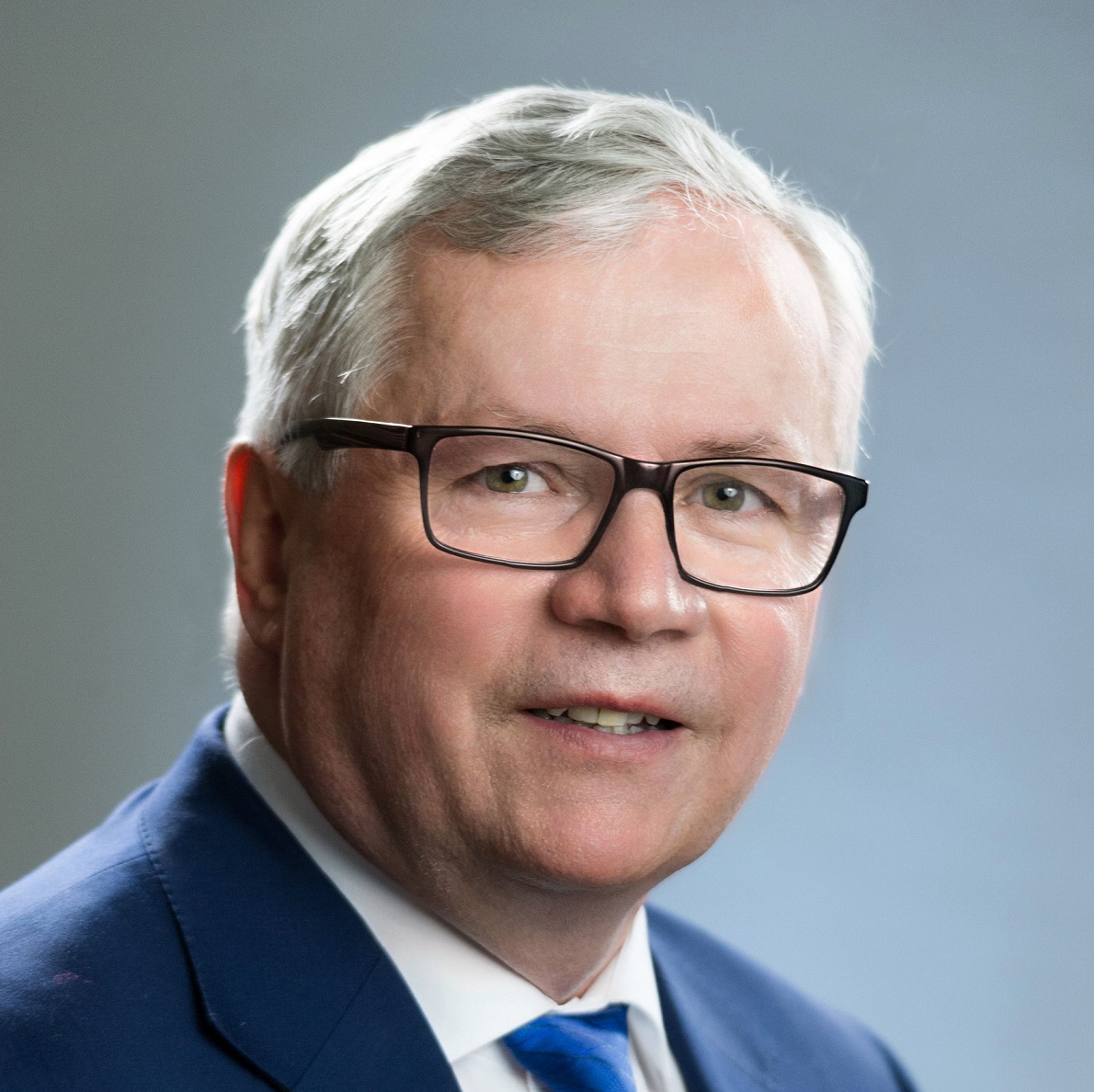
Juraj Sinay
Professor & Coordinator of hydrogen technologies in the Slovak Republic, Technical University of Košice
Professor of technical equipment safety and risk theory. Rector of Technical University in Košice from 2000 to 2007, President of the Association of the Automotive Industry of the Slovak Republic from 2015 to 2017. Currently, he is the Coordinator of Hydrogen Technologies in the Slovak Republic and a member of author teams for the development of the National Hydrogen Strategy of Slovak Republic as well as the National Hydrogen Strategy Action Plan.
Slovakia is committed to a developed Europe and the ideals of the Green Deal. However, what are the real steps taken by the government to meet our obligations under the GD? Will we witness bans on internal combustion engines without adequate market stimulation in the form of support for the purchase and construction of infrastructure?
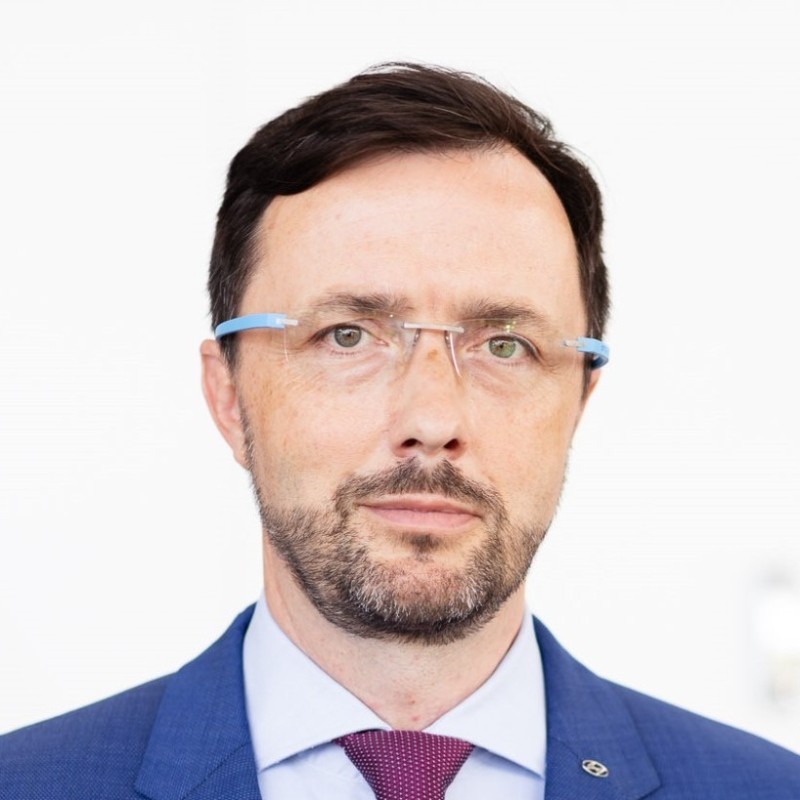
Róbert Baumgartner
CEO, Hyundai Motor Slovakia
Robert Baumgartner has been the CEO of Hyundai Motor Slovakia since 2015. During his thirty years in the field of automotive distribution, marketing and services in Slovakia and abroad, he led the company Škoda Auto Slovensko, IVECO SR and managed the international trade in spare parts in IVECO SpA, Italy. He has a master’s degree in mechanical engineering in the field of Motor Vehicle Construction.
Slovakia is committed to a developed Europe and the ideals of the Green Deal. However, what are the real steps taken by the government to meet our obligations under the GD? Will we witness bans on internal combustion engines without adequate market stimulation in the form of support for the purchase and construction of infrastructure?

Patrik Križanský
Director, Slovak Electric Vehicle Association (SEVA)
During his career, Patrik Križanský has focused on innovative companies and international projects focused on electromobility and renewable resources. He currently leads the technology startup Espio, which focuses on graphene sensors for batteries.
He co-founded the Slovak Electromobility Association and today leads it as its director. He is also Vice-President of the European Electromobility Association (AVERE), based in Brussels.
He holds a Executive MBA from the Carlson School of Management (University of Minnesota) and the Vienna University of Economics (WU Wien). He also completed his studies in international relations and diplomacy at the MBU in Banská Bystrica.
Slovakia is committed to a developed Europe and the ideals of the Green Deal. However, what are the real steps taken by the government to meet our obligations under the GD? Will we witness bans on internal combustion engines without adequate market stimulation in the form of support for the purchase and construction of infrastructure?
16:15 - 17:00 Networking break

Congress foyer
17:00 - 17:30 Technology Innovation around Smart Cabin, safer and more pleasant driving experience
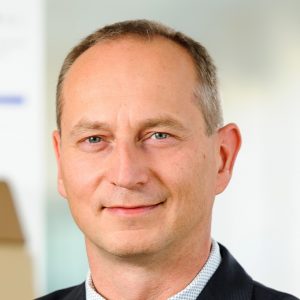
Ivan Kebísek
Engineering Director, Site Lead of Technical Center in Slovakia, Yanfeng International Automotive Technology
Ivan Kebísek is Director Engineering of Yanfeng International Automotive Technology, located in Trenčín, Slovakia. He is responsible for Yanfeng Technical Center in Trencin, Slovakia and he is Engineering lead for Customer Business Units of FCA brands in Stellantis group (Fiat, Alfa Romeo, Maserati) and for Suzuki in Europe. His responsibility covers R&D and Engineering for Yanfeng products, mainly focused on Interiors – Instrument Panels, Cockpits, Floor Consoles and Door Panels.
- Yanfeng overview, main pillars of the products: Interiors, Seating, Passive Safety, Cockpit and Electronics and Exteriors
- Yanfeng Smart Cabin Vision: Cabin Ambiance, Adaptability and Personalization, Multi-modular HMI, Integrated Intelligent Safety and Connected Services
- Future of car interiors – connection between Physical trends and Digital trends combined with Safety and Well-being features.
17:30 - 18:00 Which car is actually green? Are we really fighting against the right enemy of climate?
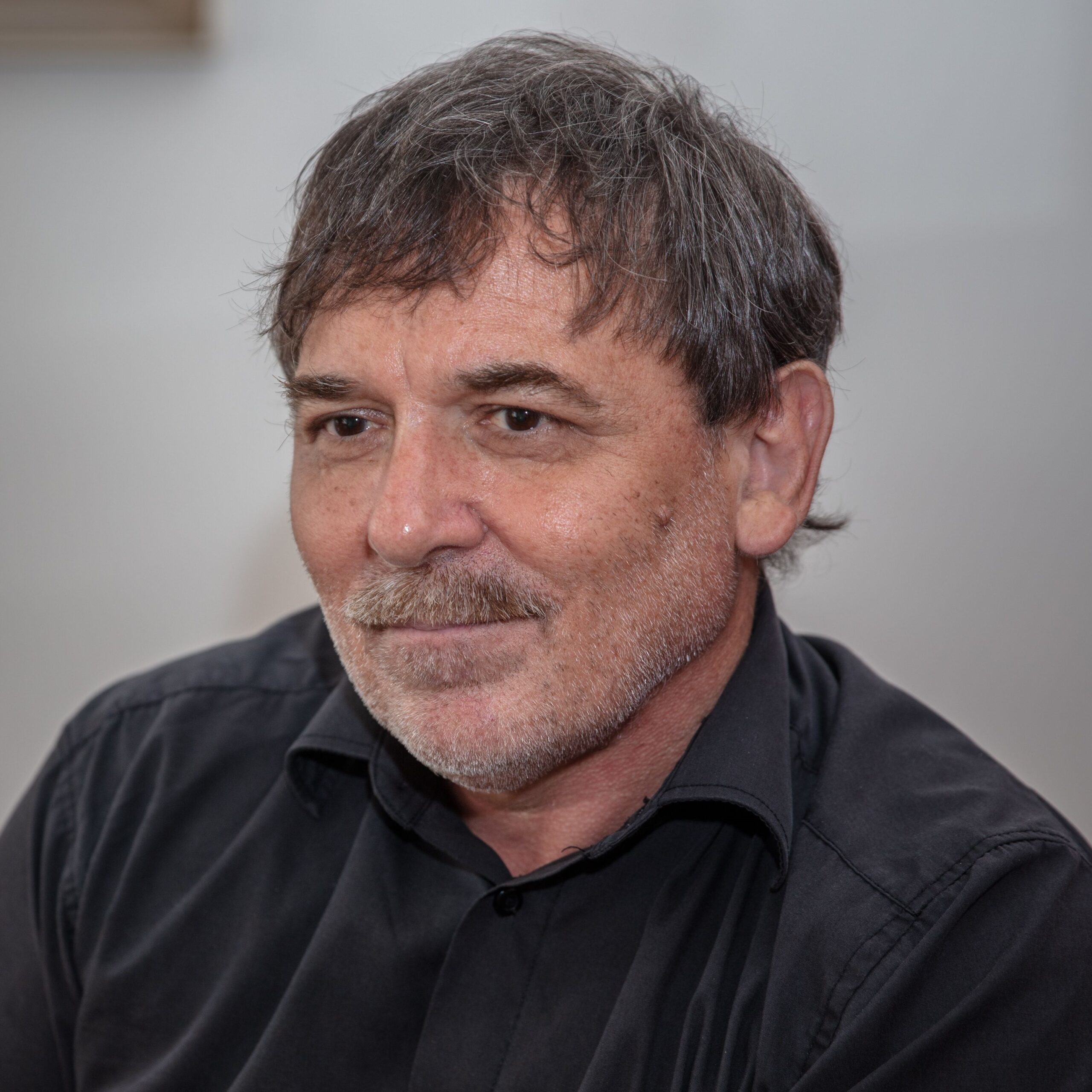
František Simančík
Institute of Materials and Machine Mechanics, Slovak Academy of Sciences
Dr. František Simančík is a member of the Presidium of the Slovak Academy of Sciences. He is the head of the academic innovation center for light metals and composites (INOVAL) and coordinator of Centre of excellence for R&D on structural composites for engineering and medical applications. His research is focused on the development of novel lightweight structural materials including metal matrix composites or metallic foams. Main research results include the development of metal foaming technology with several successful applications in car body structures and applications of MMCs parts where efficient heat management is required. He coordinated more than 30 research projects including 13 international projects and successfully supervised 9 PhD students.
Current concerns related to climate change lead to drastic regulations of the amount of CO2, generated by car engines. It is generally considered that the best solution is the replacement of the current internal combustion engine with an electric motor, which represents a major competitive threat to many European passenger car manufacturers.
But is a BEV really the best solution today? What should an engine with minimal environmental impact look like? Is it realistic to expect a radical change concerning climate change mitigation? And do combustion engines really have to be the first victims? If not what to do? In this lecture, we will try to find answers to these controversial questions in a bit unconventional way.
18:00 - 18:10 Summary of the first conference day and invitation to the evening program
19:30 Evening Raut & Networking

Tálska bastion
June, 8h (Wednesday)
08:30 - 09:00 E-mobility – Green and Smart Cities
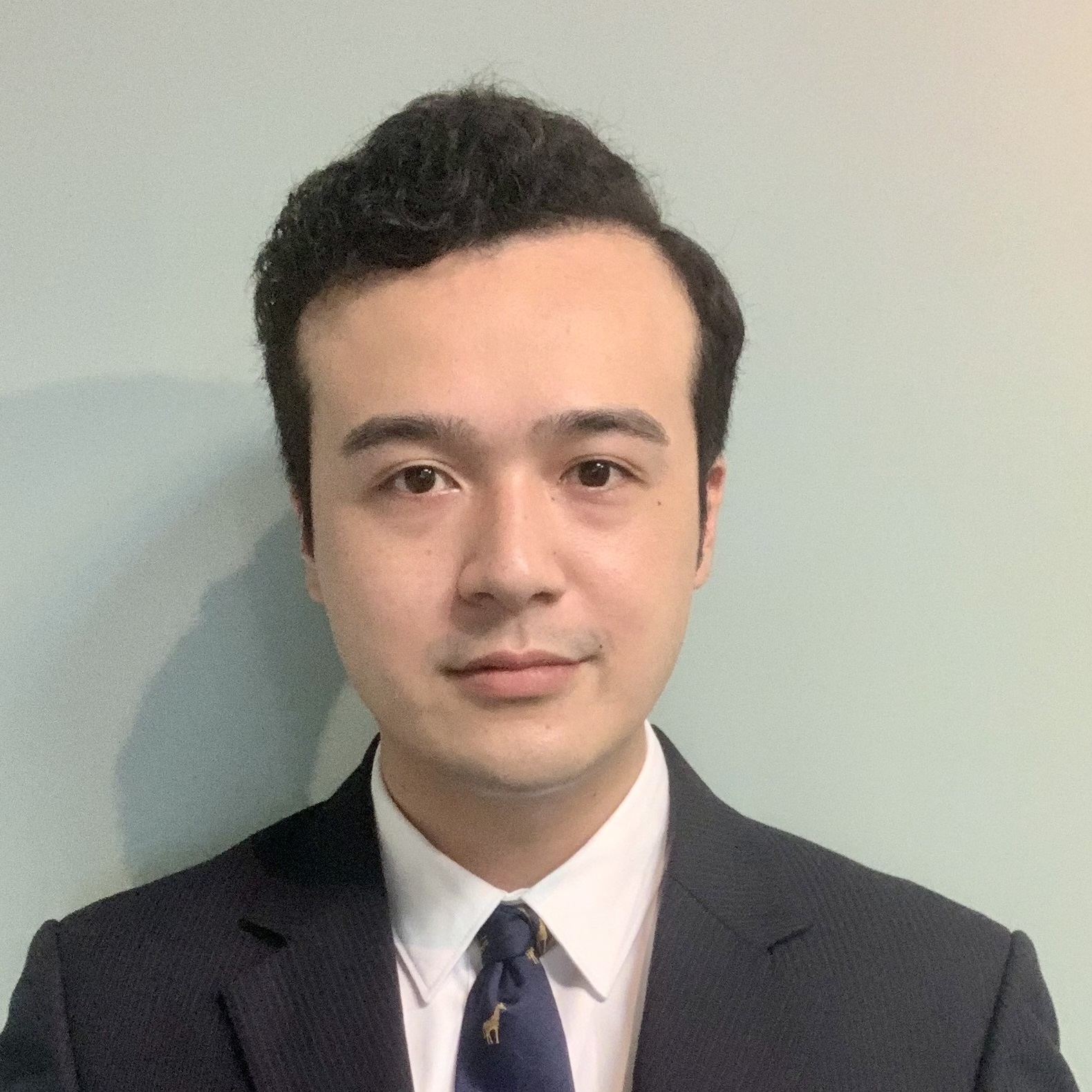
Lucky Yu
Manager, Planning & Marketing Department, Master Transportation Bus Manufacturing
Lucky Yu, Manager of Planning and Marketing Department from Master Transportation Company. He was responsible for overseas marketing in Master Group. His main experience inside Master Group includes presenting the total solution of transportation to the Government of Shan State, Myanmar, having the research in Cambodia for our local fleet operation, and holding few exhibitions and e-bus demostrations in Malaysia and Middle East, meanwhile, taking care of government-related project in Taiwan.
Brief introduction of Master e-transportation total solution with the safest and the most advanced electric bus, and how we plan to electrify diesel buses for fleet operators, also, maximize the carbon credits.
09:00 - 9:25 We Will We Will Hack You!
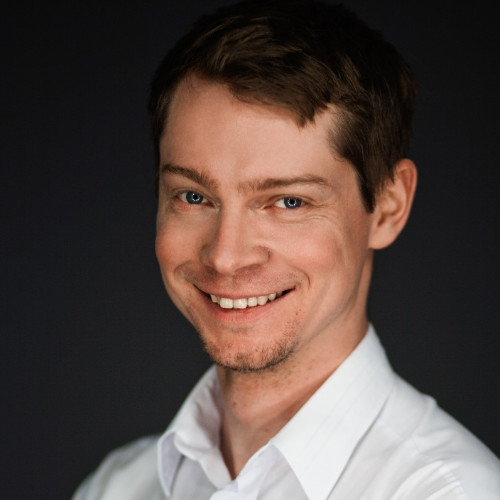
Tomáš Zaťko
Ethical Hacker, CEO, CITADELO
Tomas hacked the bank that holds your money. Don’t worry, though – he was on the good side, with the valid contract and the goal to help. Tomas found his hacker talent back in childhood – wrote his first program as eight years old. In his adult life, he decided to make the world more secure. Tomas has more than fifteen years of professional experience in IT security. He is helping companies ranging from e-commerce to major financial institutions. He is the hacker on your side.
Cyber-security from the hacker’s point of view. We break things; we bypass security; we go where we shouldn’t. What are you going to do about it?
09:25 - 09:50 Digitalization is a Fundamental Innovation of the Company
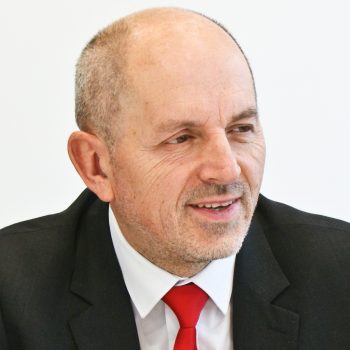
Martin Morháč
founder, Intelligent Industry Association - Industry 4UM
Graduate of the Faculty of Mechanical Engineering STU in Bratislava. He has dedicated his entire professional life to digitization and automation in the industry. He started his career at the Faculty of Mechanical Engineering SVŠT, he dealt with the automation of pre-production phases for the ZTS Group. In 1991, he co-founded SOVA, now known as SOVA Digital. For six years, he led the commission for research, development and innovation of the Automotive Industry of the Slovak Republic. He was a member of the Government Council for Science, Technology and Innovation. He is one of the initiators and leaders of the Association of Intelligent Industry – Industry4UM.
The lecture identifies the opportunities and possibilities of the digital transformation of an industrial company. It names the paths that businesses should take today and set their course for the future. Digital transformation as a fundamental innovation must be firmly and clearly managed by the company’s top management.
09:50 - 10:15 Use of machine vision and artificial intelligence in logistics
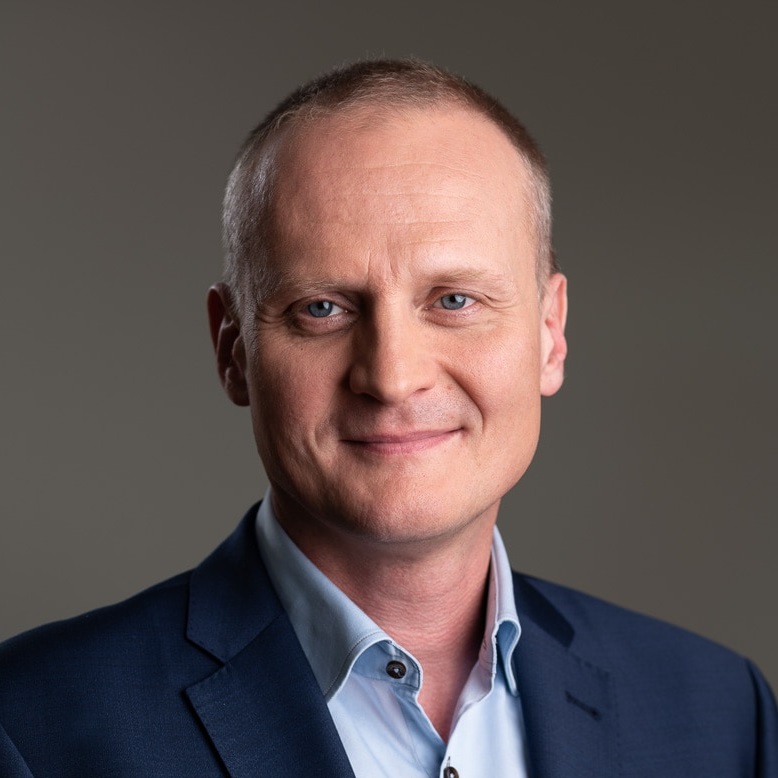
Martin Jančo
CEO, M2M Solutions
He founded and manages M2M Solutions, a Slovak technology company specializing in supply chain management, logistics, and manufacturing processes. Currently, he primarily focuses on new product development and innovation in the fields of mobility and manufacturing. Additionally, he is actively engaged in various activities aimed at addressing R&D challenges.
In recognition of his significant contributions to building the smart industry ecosystem, particularly in the smart mobility and space sectors, he was awarded in 2021 in the category of Science and Technology Personality.
Imagine that incoming trucks do not have to create congestion on arrival, do not wander around the premises and spend only the time needed in your premises to handle the goods. Picking goods from shelves or production lines can be almost flawless and faster than before. And did you know that inventory can be done automatically, albeit on a daily basis, when no one at work? All this and more can be provided by machine vision solutions.
10:15 - 10:40 Small and Medium Companies – Start the Road for Digitalization, Low Cost & Risk Free and Support CO2 T...
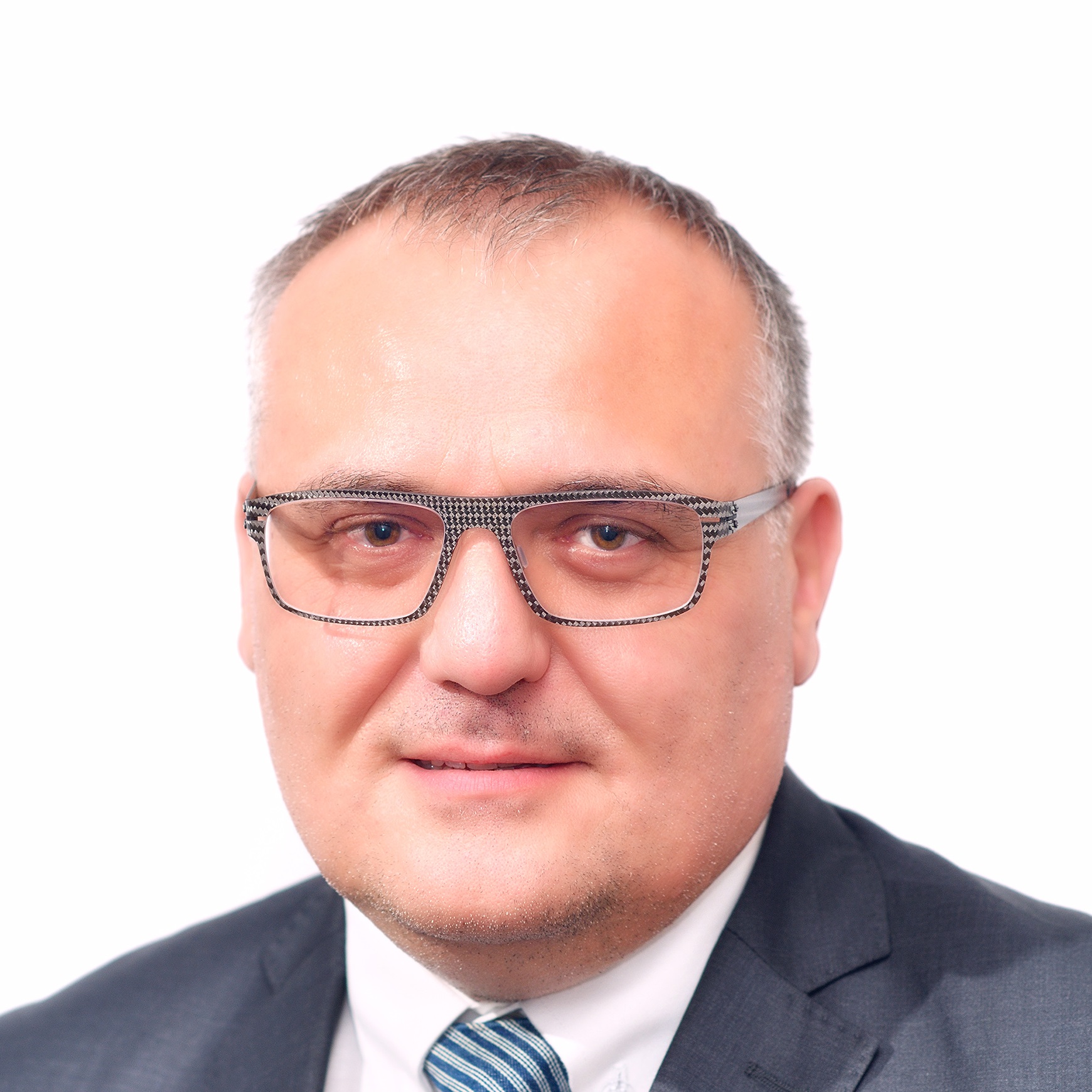
Ján Cholvadt
General manager, Kongsberg Automotive Vráble
Industy professional – 20 years in Automotive industry – Operations and General company management/turnarounds and green fields. Lean SixSigma Management Champion and BB. During carrier was starting up running and restructuring operations for Tier1/Tier2 in Czech and Slovak Republics. Last 3 years specializing in digitalization of the operating processes and organizational turnarounds to achieve efficiencies in productivity, automation, data mining, energies and waste savings/elimination in support of constant continuous improvements for operating flexibility and costs.
Case study for SME segment to understand phased development of digitalization of its operations with focus on low costs and low IT resources options, which are key factors holding back wider deployment in resource constrained operations. Also, proper understanding of the data gathering spots and related data analytics can drive down CO2 footprint of the operations or identify projects of future focus.
10:40 - 11:00 Case Studies – Industry 4.0
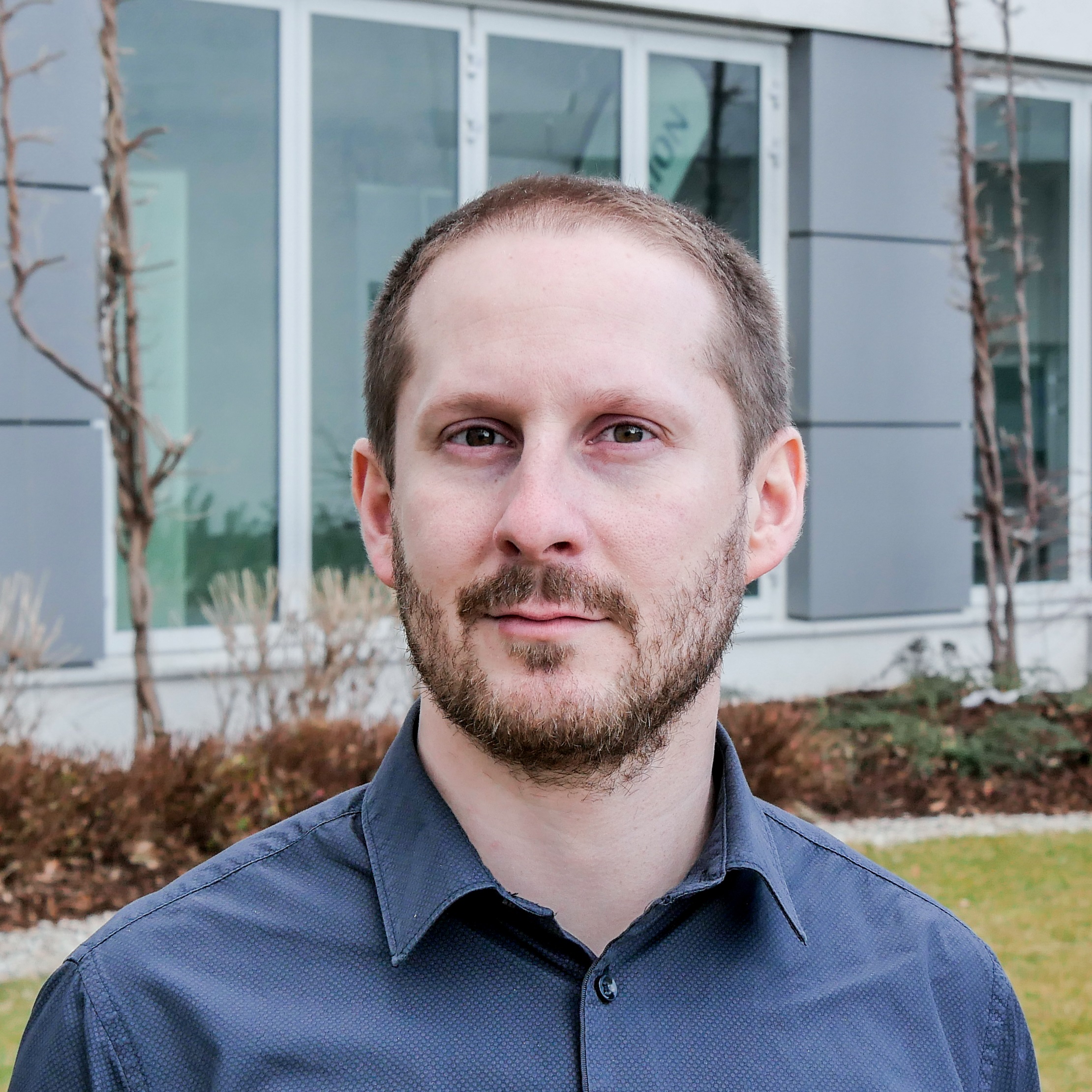
Milan Lokšík
Solution Architect, SOVA Digital
In 2015, he graduated from the Slovak University of Technology with PhD degree in the Mechatronics study programme. In SOVA Digital company he works in the field of research and development of Cyberphysical systems focusing on process optimization in production and logistics.
Speakers will present several successful applications from various areas of digitization in industrial companies in Slovakia.
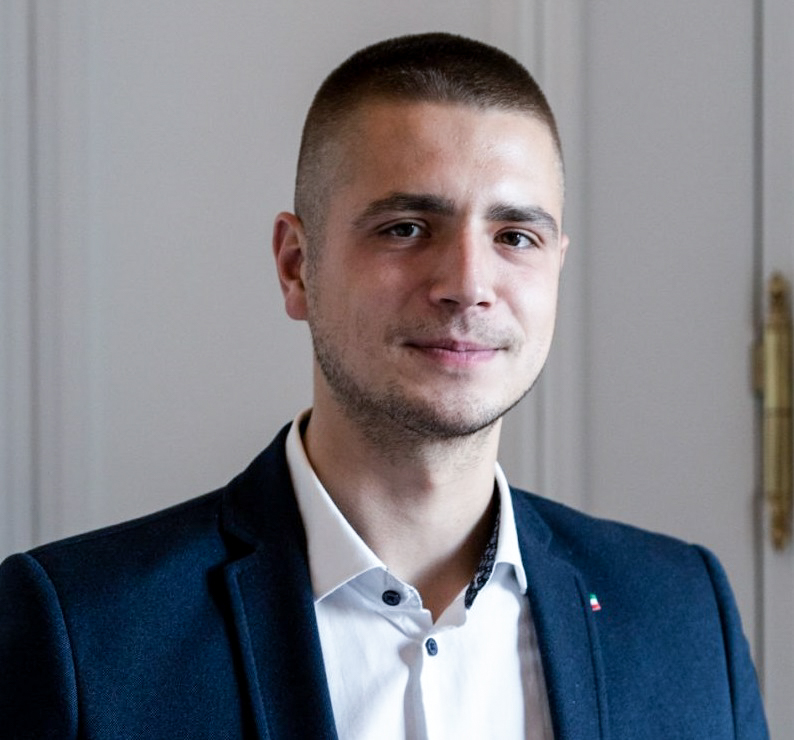
Radovan Benkovský
Solution Architect, SOVA Digital
Graduate of STU in Bratislava, in the field of energy. At SOVA Digital, he works as a solution architect focusing on processes in engineering companies, mainly in the segment of custom production. The aim of these solutions is the gradual creation of digital management of the company corresponding to its needs and possibilities.
Speakers will present several successful applications from various areas of digitization in industrial companies in Slovakia.
11:00 - 11:30 Networking break

Congress foyer
11:30 - 12:15 “Green Deal” and “Fit for 55”: What Environmental Challenges They Bring to the Automotive...
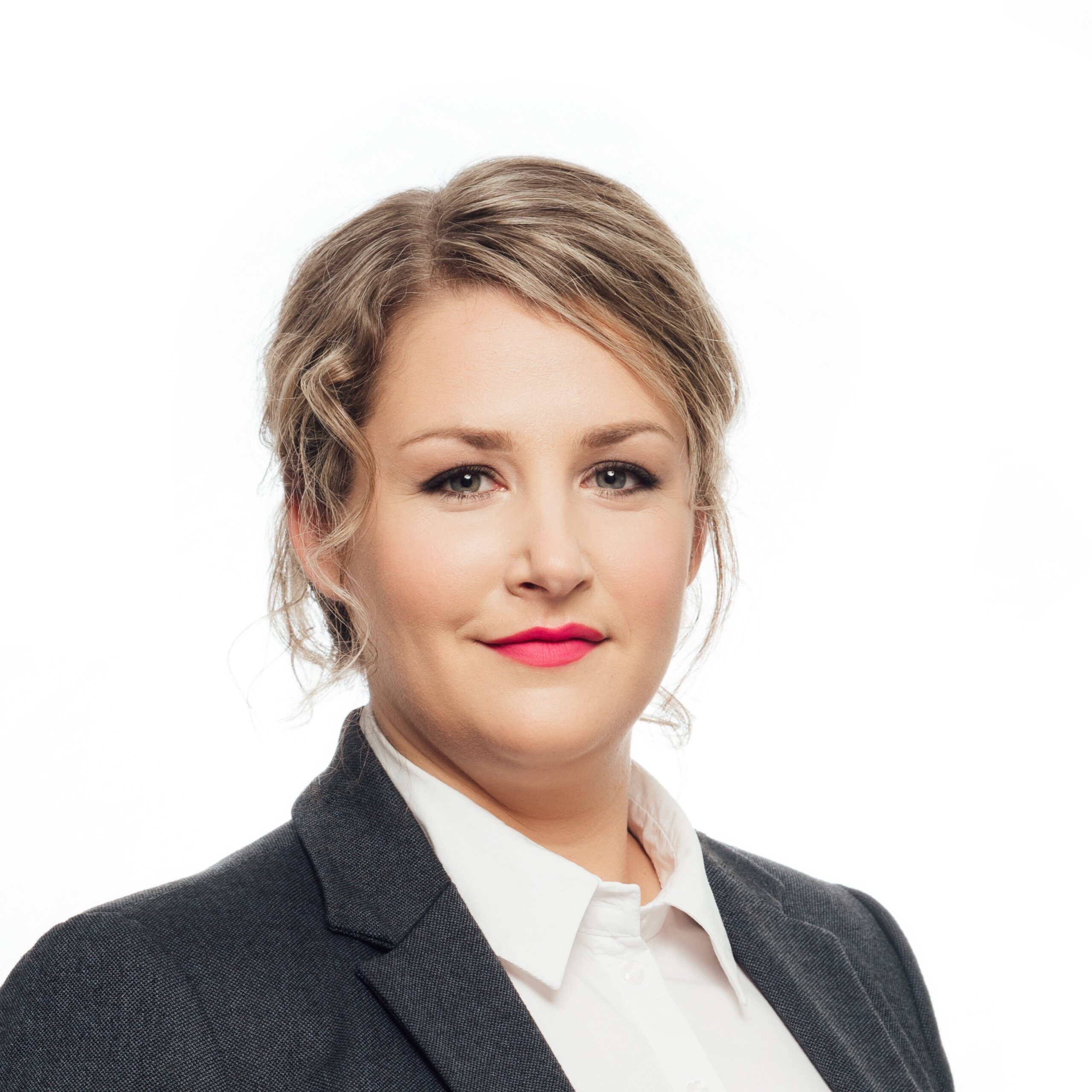
Michaela Hletková Ploszeková
Chairman of the Commission for Environmental Legislation, Automotive Industry Association of the Slovak Republic
She is head of Environment Department at Volkswagen Slovakia. She has been involved in the application of environmental protection in car production for over 16 years – implementing the requirements of legislation and environmental management systems in production processes, design and implementation of environmental strategy or preparation of concepts and plans to reduce environmental impacts for environmental and energy-intensive technologies. As a chairman of the Environmental Legislation Commission of the Association of the Automotive Industry of the Slovak Republic, she prepares opinions and proposals for comments on the environmental legislation of the Slovak Republic and the EU. Since 2021, she has been active as a member of the Government Council for the Green European Agreement of the Slovak Republic for the Federation of Slovak Industrial and Transport Associations. She graduated in Environmental Protection / Geochemistry at the Faculty of Science, Comenius University in Bratislava, and later in the professional MBA program Automotive Industry of the Technical University of Vienna and the Slovak Technical University in Bratislava.
The “Green Deal” is a new strategy for economic growth and transformation with the goals of EU climate neutrality until 2050. At the same time, the “Fit for 55” package with forthcoming directives also brings challenges for Slovakia in the field of environmental protection, climate protection, carbon neutrality and requirements to transform the economy into sustainable ones. The lecture summarizes the main topics for the automotive industry in the future and how to use these topics for the transformation to sustainable production, while many of the new requirements can be seen as an opportunity to gain a competitive advantage by producing sustainable products with energy and material efficient technologies.
12:15 - 12:45 Renewable energy as an important part of adaptive buildings and energy efficiency of buildings
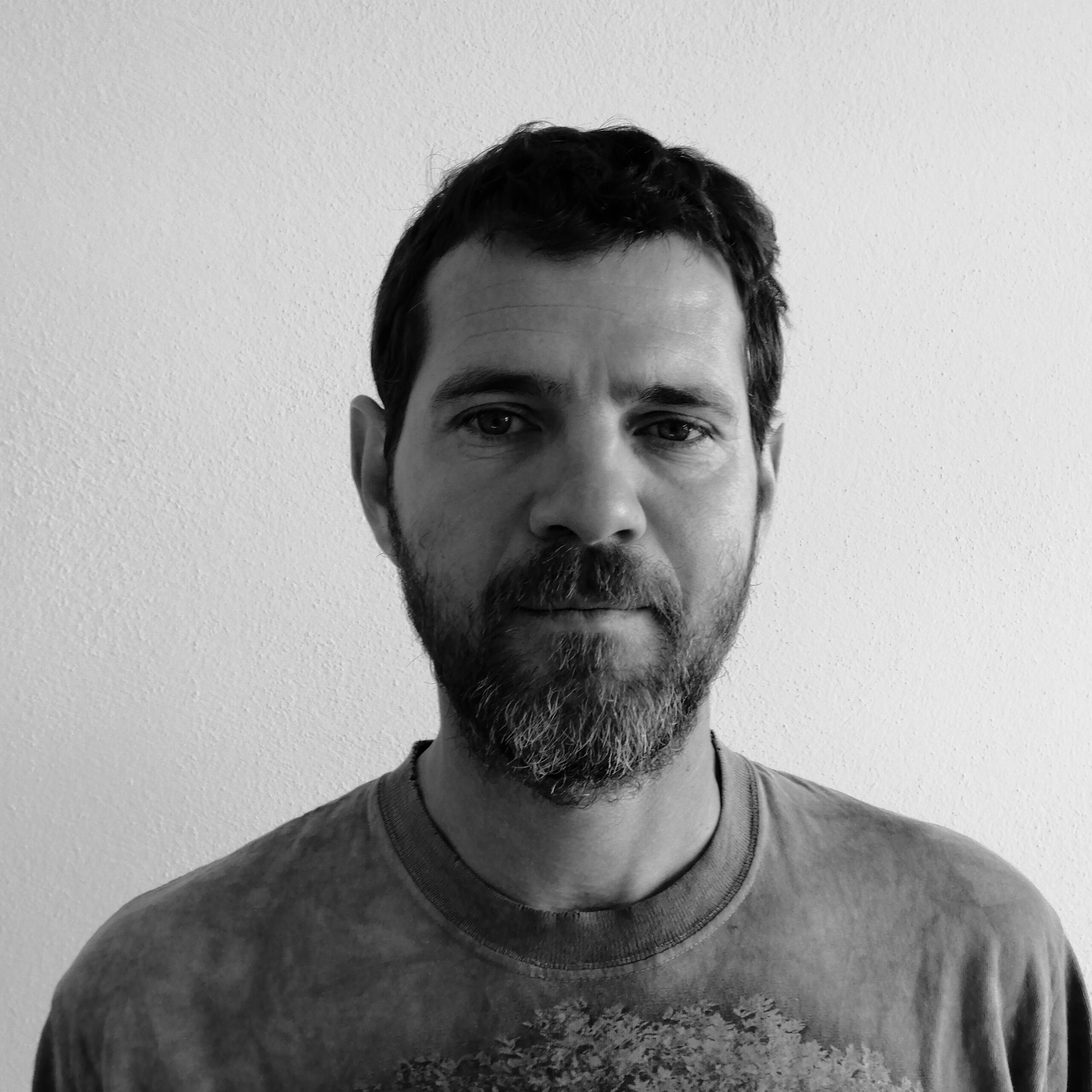
Pavel Schudich
Project manager, MDM Slovakia
I deal with renewable construction in general. I like simple solutions that bring the desired goal, but they are also environmentally friendly. Saving money is important for everyone today, so I stick to two principles: The cheapest energy is the one we don’t have to produce, and I’m not rich enough to buy cheap and not well-functioning solutions.
We focus primarily on green energy-active roofs and areas in combination with photovoltaics in the sense of: WATER AND ITS EVAPORATION AS ENERGY COOLING. Appropriate green solutions in combination with renewable sources bring several effects such as energy savings for the operation of buildings (especially in the field of cooling but also others), reduction of CO2 production, production of own energy, support of greenery and biodiversity in industrial areas, and the use of “waste” as a raw material: WASTES FROM THE AUTOMOTIVE INDUSTRY
12:45 - 14:00 Lunch

Hotel Partizan Restaurant
14:00 - 15:00 Workshop: Create a Favorable Environment and Conditions for Digitalization
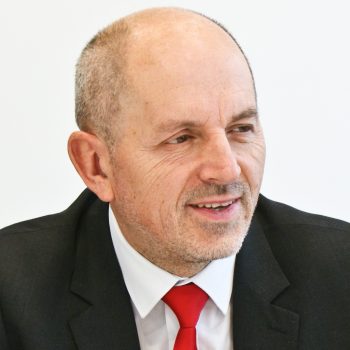
Martin Morháč
Chairman of the Board, SOVA Digital
Graduate of the Faculty of Mechanical Engineering STU in Bratislava. He has dedicated his entire professional life to digitization and automation in the industry. He started his career at the Faculty of Mechanical Engineering SVŠT, he dealt with the automation of pre-production phases for the ZTS Group. In 1991, he co-founded SOVA, now known as SOVA Digital. For six years he headed the commission for science and research at the Association of the Automotive Industry of the Slovak Republic. He was a member of the Government Council for Science, Technology and Innovation. He is one of the initiators and leaders of the Association of Intelligent Industry – Industry4UM.
The workshop is intended for business managers. It focuses on their role in creating the conditions for the successful start and implementation of digitalization in an industrial enterprise.
Digital transformation requires:
– clear leadership from top management
– developed innovation culture among the company’s employees
– well-established and functioning digital transformation processes
Participants will receive basic practical guidance on how to achieve it.
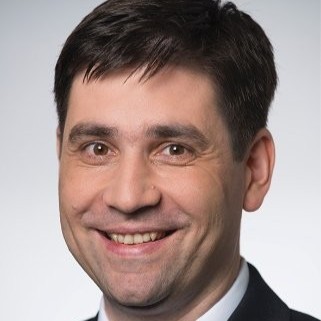
Vladimír Švač
Innovation Specialist, SOVA Digital
Graduate of the Faculty of Mechanical Engineering of the Technical University in Košice, author of professional and popularization articles. He currently works as a specialist for innovation management at SOVA Digital. He specializes in developing innovation skills, engineering creativity and building an innovation culture in industrial companies.
The workshop is intended for business managers. It focuses on their role in creating the conditions for the successful start and implementation of digitalization in an industrial enterprise.
Digital transformation requires:
– clear leadership from top management
– developed innovation culture among the company’s employees
– well-established and functioning digital transformation processes
Participants will receive basic practical guidance on how to achieve it.
10:00 - 11:00 a 14:00 - 15:00 Workshop: Internal well-being in demanding work (no interpretation, only in slovak language)
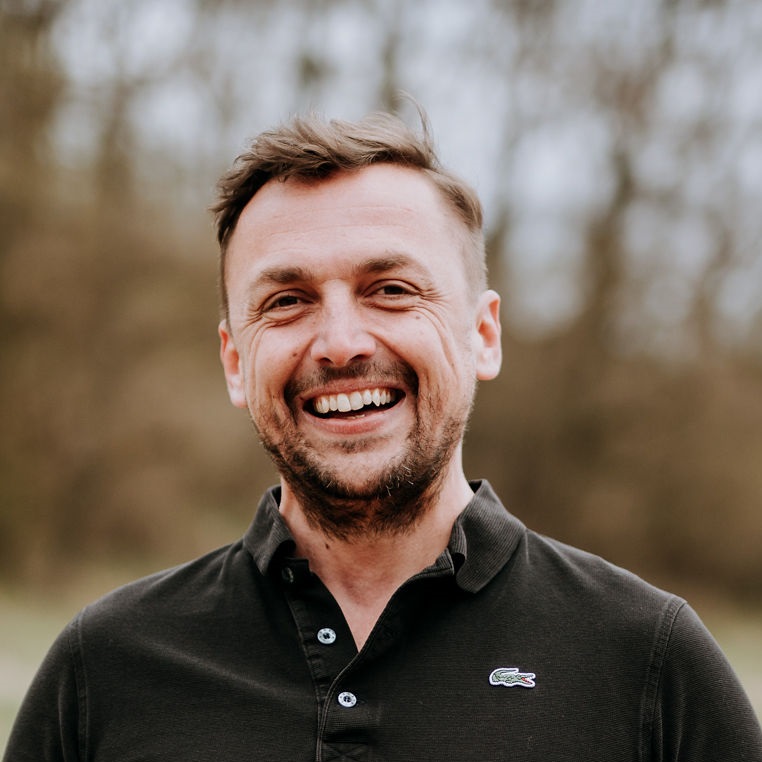
Rudolf Ivan
founder of Roriginal
He worked in various areas, mainly as a manager and leader – R&D, IE, Sales, Quality. Work experience within the EU. Over the last 10 years, he has built (together with the team) one of the largest and most competent R&D departments in Slovakia, creating more than 200 jobs, several 1000 m2 of buildings filled with top technologies, finally responsible for “own” customers and basic development (system development, mechanics and SW). Fascinated by people, how a human being “works”, how relationships work. He studied experiential pedagogy, NLP neurolinguistic programming, personality profile creation so that he could cover all levels of client or team development in his work. He founded Roriginal. He created his own comprehensive methodology of “work-life” balance, which begins with inner happiness, health and strength, awakening resistance to external factors that could trigger strong emotions, fear, stress or limiting beliefs. At the beginning of 2022, he left corporate life and is fully engaged only in the development of the people and teams they want! It helps to develop the client’s strengths to the maximum so that he achieves everything he wants in his life. With one goal of this mission: MASTER YOUR LIFE NOW!
No interpretation, only in Slovak language


 Slovenčina
Slovenčina